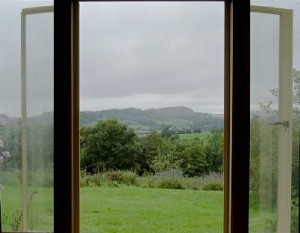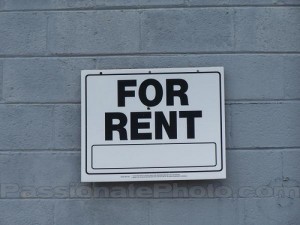Posted by Teresa on April 13, 2010 under Landlord Tips | 
 Becoming a landlord is not for everyone. A few of the attributes one needs are patience, people skills, and good business practices—and there is still no guarantee it’ll work out.
Becoming a landlord is not for everyone. A few of the attributes one needs are patience, people skills, and good business practices—and there is still no guarantee it’ll work out.
But if you’re thinking about buying your first rental property, the same factors that most landlords consider before diving into the business apply to you, too. Here are a few reasons to consider investing in rental property:
You want a diversified investment portfolio. Ask your financial advisor (preferably a professional, not your brother-in-law!) how rental property would fit into your investment mix. Diversification can help you protect your assets.
You want additional income. Most rental property owners are middle-class working people who decide another income source would be beneficial. It takes time to manage a rental property business, but you can do it part time and keep your day job. And who knows? If you’re successful, you can always work into making your rental business a full-time venture.
There are tax advantages. Again, check with your tax professional, but real estate is one of the most favored investments, tax-wise. A few benefits are deductible expenses, depreciation write-offs, and favorable capital gains tax rates. Writing off depreciation alone can offer a large tax break against annual cash flow.
In the long run, real estate holds value. Despite the housing bubble the US recently experienced, depreciating home values and foreclosures, over the long term, rental properties have held their value through all the boom and bust housing market cycles. Of course every business has up periods and down periods, and rental property is no exception. Think long term, and be cautious.
Investing in rental property can help you in retirement. Done well, and with a thought-out strategy, real estate investment can augment your retirement fund. As with any investment, the earlier you begin, the better your results will be. Think about holding properties for 20—30 years, not 5. Think tortoise—not hare—when it comes to making decisions about rental property as an investment.
The contents of this article are intended for general information purposes only, and should not be relied upon as a substitute for obtaining tax advice applicable to your situation.
Posted by Teresa on June 24, 2009 under Landlord Tips | 
You purchased your rental properties in order to make a profit, right? And, you’re protecting those invested dollars by keeping your properties in great condition. But to leverage the properties for maximum profit, you need to upgrade periodically, as well.
When considering upgrades to your rental units, don’t look at them as expenses; upgrades can potentially earn you several times their expense in profits. Just be sure to compare the cost of the upgrade with the amount of increased rent to see how long that will take.
If you’re considering upgrades, here are some guidelines to help you increase the value—and therefore, the monthly rent—of your investment property:
 1. Maximize the view: If you can add a window to reveal a mountain, water, park, or forest view, do so! Your unit will instantly increase in value.
1. Maximize the view: If you can add a window to reveal a mountain, water, park, or forest view, do so! Your unit will instantly increase in value.
2. Increase storage: Tenants love closet space, built-in shelves, and built-in bookcases. Fill in dead space areas with additional storage and watch tenants fall in love.
 3. Find outdoor living space: Add a patio or deck to give your tenants the outdoor living areas that everyone wants now.
3. Find outdoor living space: Add a patio or deck to give your tenants the outdoor living areas that everyone wants now.
4. Upgrade fixtures: Look at your rental property through a tenant’s eyes: are the light fixtures and switch plates tired and outdated? Faucets chipped and tarnished? Carpet stained and out of style? Adding fresh carpets, tile, molding, and paint will delight potential tenants.
5. Increase energy efficiency: Keep tenants toasty warm and maximize curb appeal by upgrading windows and patio doors. French doors and new windows instantly increase value.
6. Let there be light: The amount of natural light directly affects the value of your rental unit. If you enlarge or add windows or skylights to bring in more light, you will increase value; therefore, you can increase the rent and see a return on your investment.
7. Replace worn out appliances: A new dishwasher or a microwave/exhaust hood combination are simple upgrades that don’t cost thousands of dollars—and are seen as a real treat by prospective tenants.
Remember, if you want high-quality tenants, you must give them what they’re looking for. If they want a nice place for their family to live, they will pay a premium for it. Spending money now will increase your income and cash flow in the future!
For more landlord resources, including forms and information on
tenant screening, turn to
E-Renter.com. You’ll know that you have the best possible tenants when you
prescreen tenants.
Posted by Teresa on March 20, 2009 under Landlord Tips, Tenant Screening & Background Checks | 

More Homeowners are Hanging This Sign
The economy is making landlords out of homeowners in ever-increasing numbers. For some, their home’s value has plummeted, and they are reluctant to sell at current prices, believing their home is worth more. Sellers are riding out the market, renting their homes until values increase again.
Others turn to renting because they cannot keep a house on the market indefinitely, while paying mortgage, taxes, and insurance. Renting becomes a way to cover out-of-pocket expenses.
Still others become landlords as a way to supplement income in retirement or while still employed. As times get tougher, investments trickier, and jobs uncertain, owning income-producing real estate makes sense to more and more people.
If you have decided to rent your home or invest in rental property, you now face another decision: to manage your property yourself, or hire a property management company. Ask yourself these questions to help you decide:
Are you a people person? Do you enjoy helping people solve problems—without much appreciation? Landlords cannot be shy or guarded—they should enjoy working with people from all backgrounds and personality types.
Are you patient? Do you convey a professional demeanor? Landlords must be tough, fair, and not easily ruffled. Some tenants will try to manipulate you; others will need more attention; still other tenants will require a firm hand. Landlords must be consistent with the rules, applying them equally to all tenants. Are you ready for this challenge?
Can you easily separate personal emotions from business decisions? If you rent your home, it becomes a business venture—some people cannot see it that way. If you manage tenants, their personal problems cannot become yours.
Are you well organized? Property management requires excellent record keeping skills, bookkeeping, and time-management. You must become familiar with housing laws and contracts, too.
Do you have maintenance and repair skills? Or can you manage someone who does?
Finally, are you willing to commit the time, effort, and stress involved in becoming your own property manager?
If you answered “yes” to all of these questions, then rental property management could be a good fit for your skills. If not, you might still consider it, knowing which areas need work, and where you need to be more flexible.
If your answers are all “no”s, then you might turn your attention to ventures other than managing property. Still, owning income property is not out of the question, because you don’t have to manage it yourself.
Start the decision-making process by being honest with yourself. Know your strengths and weaknesses. If you are truly up for the challenge, educate yourself to ensure you are not stepping over legal boundaries or into unfamiliar territory. The better prepared you are, the more successful you will be.
Managing rental property on your own does not have to be a completely solo venture. Seek out the resources that will help you do a better job, such as educational opportunities, maintenance service providers, and tenant screening services.
For more landlord resources, including everything you need to know about
tenant screening, turn to
E-Renter.com. You’ll know that you have the best possible tenants when you prescreen.
 Becoming a landlord is not for everyone. A few of the attributes one needs are patience, people skills, and good business practices—and there is still no guarantee it’ll work out.
Becoming a landlord is not for everyone. A few of the attributes one needs are patience, people skills, and good business practices—and there is still no guarantee it’ll work out.

 3. Find outdoor living space: Add a patio or deck to give your tenants the outdoor living areas that everyone wants now.
3. Find outdoor living space: Add a patio or deck to give your tenants the outdoor living areas that everyone wants now.